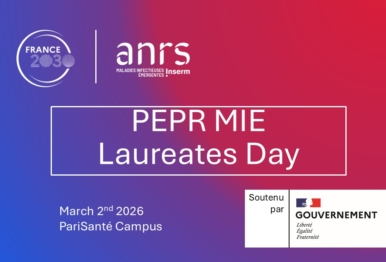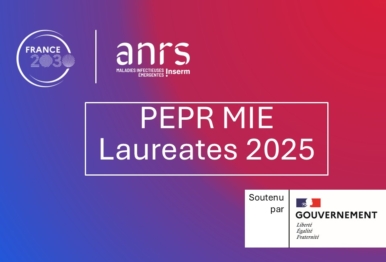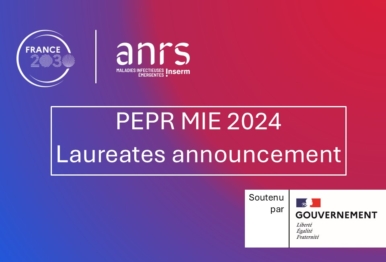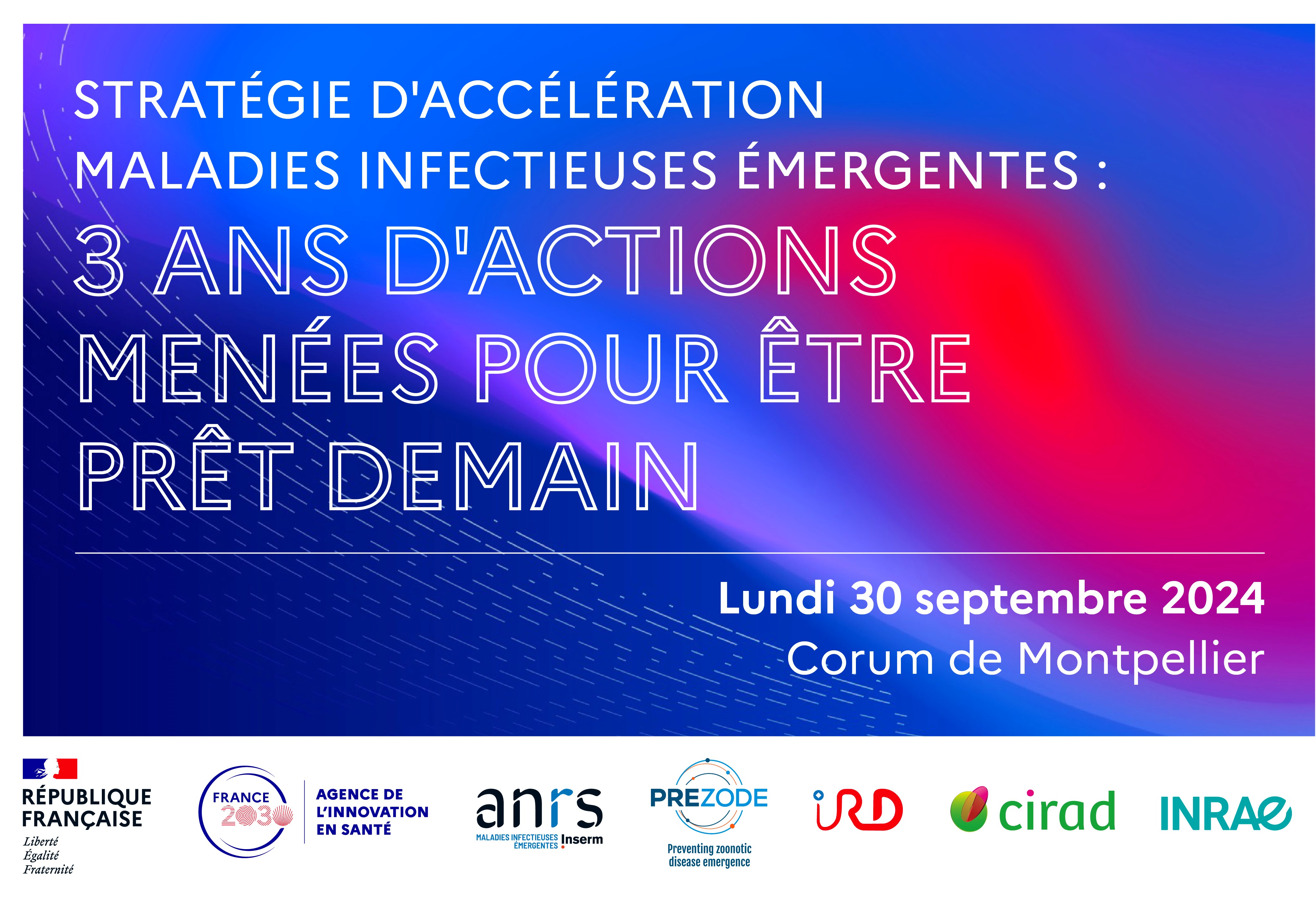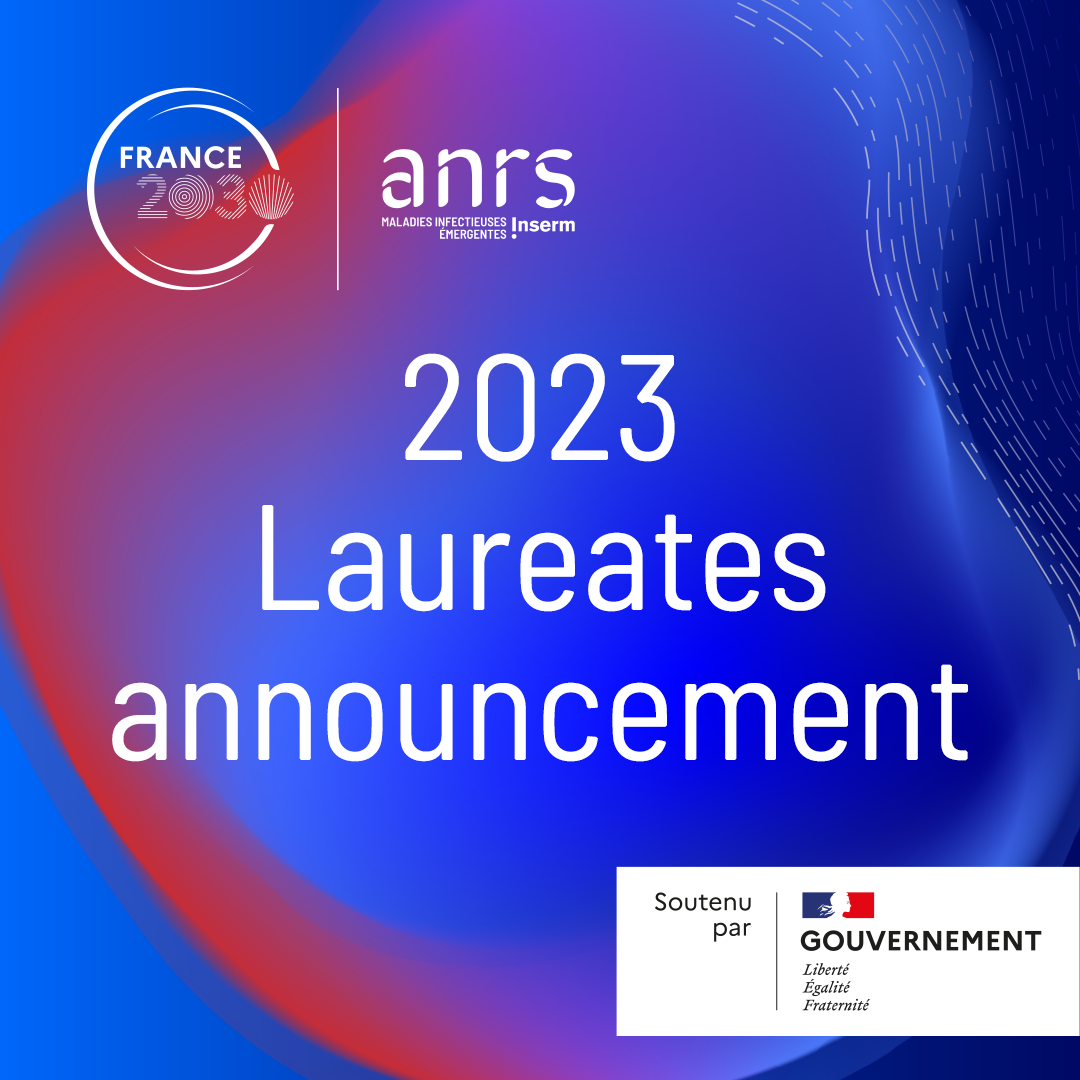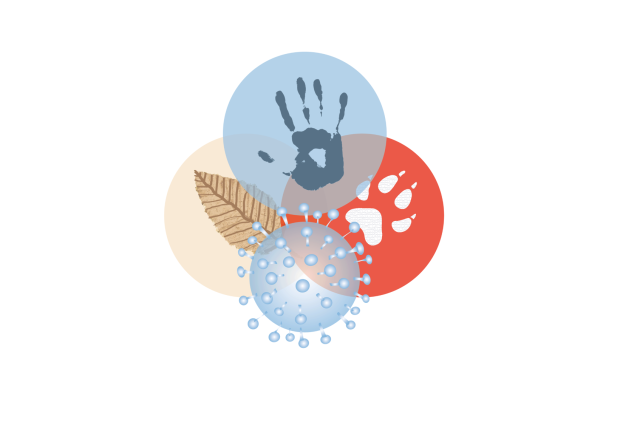
Emerging Infectious Diseases Priority Research Programme and Equipment (PEPR)
A €70 million program funded by France 2030 and led by ANRS MIE for the prevention and control of emerging infectious diseases.
Last updated on 20 January 2026
In brief
Emerging and re-emerging infectious diseases are a public health priority. The recent COVID-19 pandemic is a concrete illustration of the impact of such diseases on health but also on economies and societies. In this context, the implementation of ambitious research projects is essential if we are to better understand, prevent and control the phenomena of emergence of infectious diseases. To address these challenges, France has established a National Acceleration Strategy for “Emerging Infectious Diseases and Nuclear, Radiological, Biological, and Chemical Threats” (MIE-MN), supported under the France 2030 framework
The scientific foundation of the strategy consists of two complementary Priority Research Programmes and Equipment (PEPRs) which will be implemented in close collaboration over a 5-year period:
- PEPR MIE, which concerns the prevention and control of emerging infectious diseases. It has been assigned €70 million in funding by France 2030, and is led by ANRS Emerging Infectious Diseases (ANRS MIE) in collaboration with its various French academic partners;
- PEPR PREZODE, which concerns the prevention of zoonotic emergences (viruses, bacteria or parasites transmitted to humans by animals or insects). It has been assigned €30 million in funding and is led by CIRAD, INRAE and IRD, and operated by ANR.
The objectives of Emerging Infectious Diseases PEPR (PEPR MIE)
The objective is to better understand, prevent and control emerging and re-emerging infectious diseases by establishing interdisciplinary, multidisciplinary and multi-institutional relationships and by taking into account the interdependence between the health of animals, humans and ecosystems.
In order to meet the objectives, ANRS MIE has developed a strategy to fund, facilitate and coordinate research according to the following 3 components:
- Component 1 – Accelerating the acquisition of knowledge about EIM
- Component 2 – Organising and developing new treatments, vaccines and other prevention, diagnostic and surveillance tools for EIMs
- Component 3 – Enabling public policies and society to deal with epidemic crises
The expected impacts
The PEPR MIE must enable:
- better pandemic risk preparedness;
- the capacity to respond faster and more effectively (detection, prevention, treatment);
- a significant increase in French scientific community cohesion and responsiveness during the next pandemic, particularly thanks to its capacity for the rapid transfer and industrial scale-up of the findings and resources generated by academic research and/or public/private partnerships.
What concrete activities?
The PEPR MIE makes it possible to support upstream research projects, R&D (TRL 1 and 3), infrastructures, equipment purchasing, and Chairs.
Funding is through annual competitive calls for proposals, calls for expressions of interest and calls for applications. These calls will address French public research team consortia. The research projects must fall within the scope set out in the call for proposals, the themes and pathogens targeted.
In total:
- Three interdisciplinary calls for proposals covering the three parts of the programme (2023, 2024 and 2025);
- One call for applications for Junior Chairs in 2025.
Events
- Progress report on the national MIE & NRBC strategy and presentation of the PEPR MIE – 2 December 2022.
- Networking event for PEPR MIE project leaders – in person on 23 March 2023 in Paris; networking platform until 6 April 2023.
- Joint PREZODE & MIE information webinar – Tuesday 14 May 2024 (replay and FAQ): YouTube replay FAQ AAP 2024 PEPR MIE FAQ AAP 2024 PEPR PREZODE
- AAP 2025 information webinar – 22 May 2025 and FAQ (Webinar link & FAQ link)
- Junior Chairs 2025 information webinar – 22 May 2025 and FAQ (Webinar link & FAQ link)
- SA MIE-MN Day at the Corum in Montpellier – 30 September in person – 3 years of action to be ready for tomorrow (Press release)
- 2023, 2024, 2025 and 2026 Laureates’ Day
Call for proposals 2023
The first PEPR MIE call for proposals was open from 7 February to 24 April 2023.
Following evaluation by an international panel of experts of the 37 eligible research projects, 11 were selected to receive a total of around €22 million in funding.
Discover the PEPR 2023 winners See the postersCall for proposals 2024
The PEPR MIE call for proposals was open from 8 April to 10 June 2024.
In order to concentrate research efforts and the resources made available under the 2024 call for croposals, the scope of the call has been narrowed down to three disease groups presenting a high risk of a health crisis in France: arboviruses, viral haemorrhagic fevers and respiratory viruses.
The 2024 call for projects has an indicative budget of €13m. Following evaluation by an international panel of experts of the 27 eligible projects, nine research projects were selected and will receive total funding of nearly €16 million.
Access the call for proposals PEPR MIE 2024Call for proposals 2025
Following the success of the calls for projects launched in 2023 and 2024, which respectively funded 11 projects for a total of €22 million and 9 projects for nearly €16 million, ANRS MIE announced the launch of a new call for projects in May 2025, open from 2 May to 30 June 2025.
Thirty-six research project applications were submitted as part of this new wave, and nine were selected after evaluation by a jury of international experts. They will therefore receive funding from the France 2030 plan budget totalling approximately €14.8 million, with grants per winner ranging from €1 million to €2 million.
Discover the 2025 laureatesCall for applications for Junior Research Chairs
The call for applications for Junior Research Chairs aims to stimulate innovation and scientific development through research proposals, and offers young scientists chairs to develop innovative research within the scope of the PEPR MIE, which will be funded with a maximum of €1 million over a period of 48 months. The call for applications for Junior Research Chairs 2025 has an indicative budget of €3 million.
Five proposals for new junior chairs have been selected from among twenty applications. They will also receive funding from the France 2030 plan totalling approximately €4.6 million.
Discover the Junior ChairsFor more information
Place within the emerging infectious diseases research funding ecosystem
ANRS MIE ensures the proper interconnection of the PEPR MIE with the other existing mechanisms for research funding and coordination in this area, and in particular:
- the other components and measures of the MIE-MN acceleration strategy (PEPR PREZODE; innovation component for the pre-maturation and maturation or support for research platforms; organisational component for prevention, preparation and crisis management; training component);
- the other funding windows (of the ANR, and in particular the generic call for proposals; the programmes of the DGOS and its partners, with ReCH-MIE, PHRC, PRT, PRME, PREPS, PHRIP, ReSP-Ir, MESSIDORE; the other ANRS-EID calls for proposals, particularly for collaborative projects with low- and middle-income countries);
- the funding of research in response to a crisis (specific ANRS-EID calls for proposals, initiatives such as CAPNET for COVID-19);
- international programmes – particularly European (Horizon Europe, EU-HERA, DIGITAL Europe Program, EDCTP, etc.).
The priority pathogens of the 2023 PEPR MIE call for proposals
VIRUSES
- Arenaviridae: Genus Mammarenvirus (Lassa virus)
- Nairoviridae: Genus Orthonairovirus (Crimean Congo Hemorrhagic Fever virus)
- Phenuiviridae: Genus Phlebovirus (Rift Valley Fever virus)
- Hantaviridae: Genus Orthohantavirus (Andes & Sin Nombre viruses)
- Coronaviridae
- Filoviridae (Ebola & Marburg viruses)
- Flaviviridae: Genus Flavivirus (Zika, Dengue, Yellow Fever & West Nile viruses)
- Orthomyxoviridae (Influenza viruses)
- Pneumoviridae (RSV)
- Paramyxoviridae (Nipah & parainfluenza viruses)
- PoXviridae (Monkeypox & Camelpox viruses)
- Togaviridae (Chikungunya virus)
BACTERIA
- Francisella tularensis tularensis
- Yersinia pestis
- Bacillus anthracis
- Burkholderia mallei

